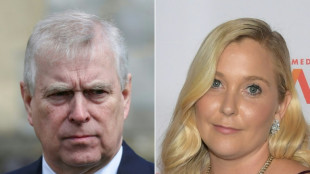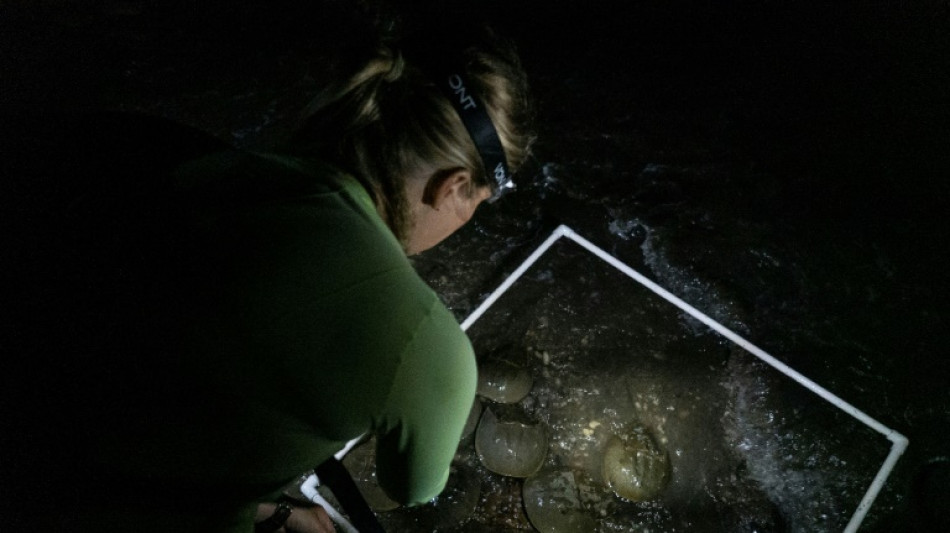
-
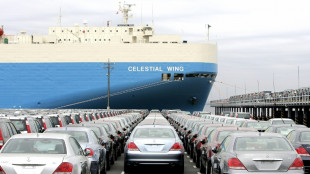 Japan says US tariffs 'extremely regrettable', may break WTO rules
Japan says US tariffs 'extremely regrettable', may break WTO rules
-
South Koreans anxious, angry as court to rule on impeached president
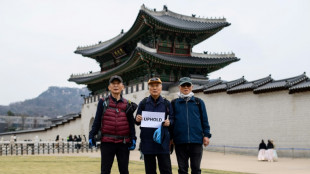
-
 Juve at in-form Roma with Champions League in the balance
Juve at in-form Roma with Champions League in the balance
-
Injuries put undermanned Bayern's title bid to the test

-
 Ovechkin scores 892nd goal -- three away from Gretzky's NHL record
Ovechkin scores 892nd goal -- three away from Gretzky's NHL record
-
Australian former rugby star Petaia signs for NFL's Chargers

-
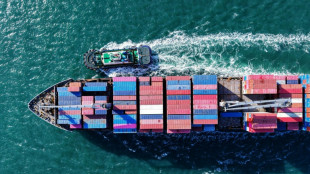 China says opposes new US tariffs, vows 'countermeasures'
China says opposes new US tariffs, vows 'countermeasures'
-
Athletics world watching as 'Grand Slam Track' prepares for launch

-
 Heat humble Celtics for sixth straight win, Cavs top Knicks
Heat humble Celtics for sixth straight win, Cavs top Knicks
-
Quake-hit Myanmar's junta chief to head to Bangkok summit
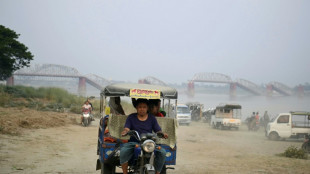
-
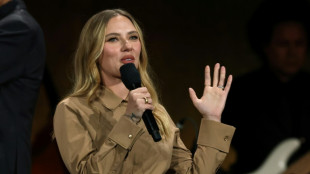 New Spielberg, Nolan films teased at CinemaCon
New Spielberg, Nolan films teased at CinemaCon
-
Shaken NATO allies to meet Trump's top diplomat
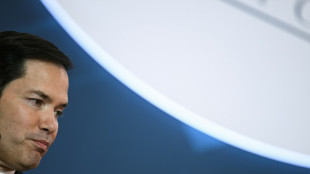
-
 Israel's Netanyahu arrives in Hungary, defying ICC warrant
Israel's Netanyahu arrives in Hungary, defying ICC warrant
-
Shiny and deadly, unexploded munitions a threat to Gaza children

-
 Stocks tank, havens rally as Trump tariffs fan trade war
Stocks tank, havens rally as Trump tariffs fan trade war
-
Altomare hangs on to tie defending champ Korda at LPGA Match Play

-
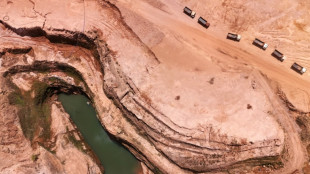 Paraguay gold rush leaves tea producers bitter
Paraguay gold rush leaves tea producers bitter
-
Health concerns swirl as Bolivian city drowns in rubbish

-
 Syria says deadly Israeli strikes a 'blatant violation'
Syria says deadly Israeli strikes a 'blatant violation'
-
Financial markets tumble after Trump tariff announcement
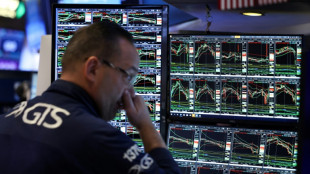
-
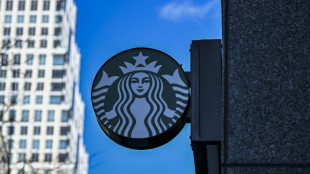 Starbucks faces new hot spill lawsuits weeks after $50mn ruling
Starbucks faces new hot spill lawsuits weeks after $50mn ruling
-
Europe riled, but plans cool-headed response to Trump's tariffs
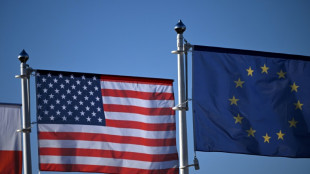
-
 'Shenmue' voted most influential video game ever in UK poll
'Shenmue' voted most influential video game ever in UK poll
-
New coal capacity hit 20-year low in 2024: report
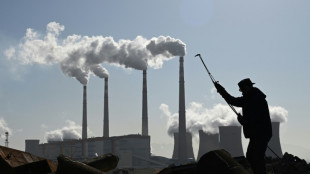
-
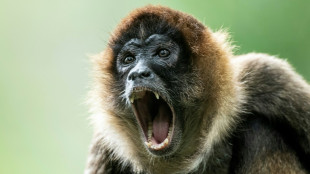 Revealed: Why monkeys are better at yodelling than humans
Revealed: Why monkeys are better at yodelling than humans
-
Key details on Trump's market-shaking tariffs
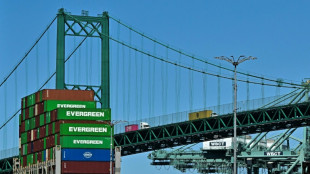
-
 'A little tough love': Top quotes from Trump tariff talk
'A little tough love': Top quotes from Trump tariff talk
-
US business groups voice dismay at Trump's new tariffs
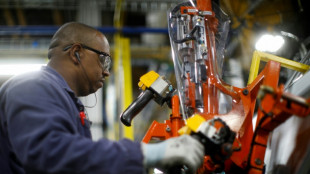
-
 Grealish dedicates Man City goal to late brother
Grealish dedicates Man City goal to late brother
-
US tariffs take aim everywhere, including uninhabited islands

-
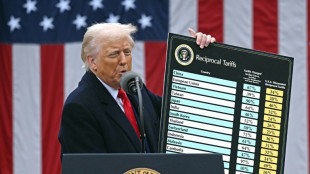 Trump sparks trade war with sweeping global tariffs
Trump sparks trade war with sweeping global tariffs
-
Israeli strikes hit Damascus, central Syria; monitor says 4 dead

-
 Slot 'hates' offside rule that gave Liverpool win over Everton
Slot 'hates' offside rule that gave Liverpool win over Everton
-
US stocks end up, but volatility ahead after latest Trump tariffs

-
 Barca oust Atletico to set up Clasico Copa del Rey final
Barca oust Atletico to set up Clasico Copa del Rey final
-
Mourinho grabs Galatasaray coach's face after losing Istanbul derby
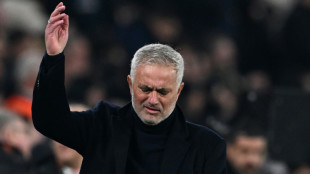
-
 Grealish strikes early as Man City move up to fourth in Premier League
Grealish strikes early as Man City move up to fourth in Premier League
-
Reims edge out fourth-tier Cannes to set up PSG French Cup final
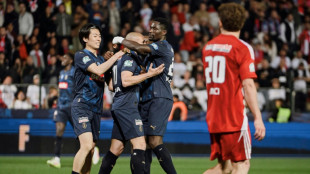
-
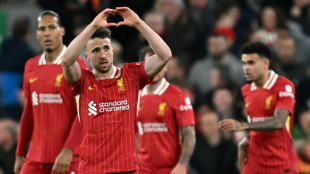 Liverpool beat Everton as title looms, Man City win without Haaland
Liverpool beat Everton as title looms, Man City win without Haaland
-
Jota wins bad-tempered derby as Liverpool move 12 points clear
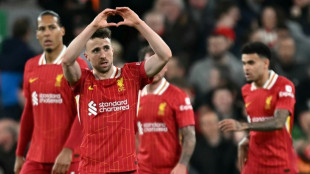
-
 Inter and Milan level in derby Italian Cup semi
Inter and Milan level in derby Italian Cup semi
-
Stuttgart beat Leipzig to reach German Cup final

-
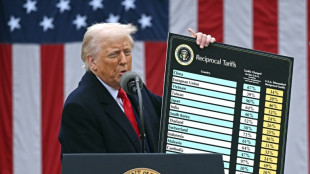 Trump unveils sweeping global tariffs
Trump unveils sweeping global tariffs
-
Italian director Nanni Moretti in hospital after heart attack: media
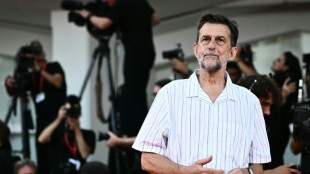
-
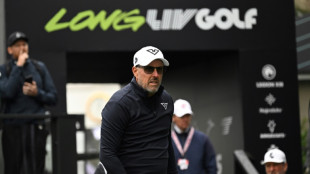 LIV Golf stars playing at Doral with Masters on their minds
LIV Golf stars playing at Doral with Masters on their minds
-
Trump unveils sweeping 'Liberation Day' tariffs

-
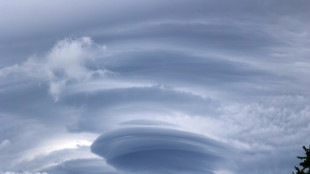 Most deadly 2024 hurricane names retired from use: UN agency
Most deadly 2024 hurricane names retired from use: UN agency
-
Boeing chief reports progress to Senate panel after 'serious missteps'

-
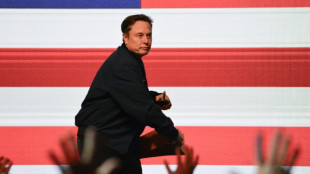 Is Musk's political career descending to Earth?
Is Musk's political career descending to Earth?
-
On Mexico-US border, Trump's 'Liberation Day' brings fears for future
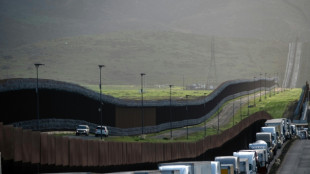

Horseshoe crabs: 'Living fossils' vital for vaccine safety
On a bright moonlit night, a team of scientists and volunteers head out to a protected beach along the Delaware Bay to survey horseshoe crabs that spawn in their millions along the US East Coast from late spring to early summer.
The group make their way up the shoreline laying a measuring frame on the sand, counting the individuals inside it to help generate a population estimate, and setting right those unfortunate enough to have been flipped onto their backs by the high tide.
With their helmet-like shells, tails that resemble spikes and five pairs of legs connected to their mouths, horseshoe crabs, or Limulidae, aren't immediately endearing.
But if you've ever had a vaccine in your life, you have these weird sea animals to thank: their bright blue blood, which clots in the presence of harmful bacterial components called endotoxins, has been essential for testing the safety of biomedical products since the 1970s, when it replaced rabbit testing.
"They're really easy to love, once you understand them," Laurel Sullivan, who works for the state government to educate members of the public about the invertebrates, tells AFP.
"They're not threatening at all. They're just going about their day, trying to make more horseshoe crabs."
For 450 million years, these otherworldly creatures have patrolled the planet's oceans, while dinosaurs arose and went extinct, and early fish transitioned to the land animals that would eventually give rise to humans.
Now, though, the "living fossils" are listed as vulnerable in America and endangered in Asia, as a result of habitat loss and overharvesting for use in food, bait, and the pharmaceutical industry, which is on a major growth path, especially in the wake of the Covid pandemic.
Recruiting citizen scientists helps engage the public while also scaling up the government's data collection efforts, explains the survey project's environment scientist Taylor Beck.
- Vital ecological role-
"Crabs" are something of a misnomer for the animals, which are in fact more closely related to spiders and scorpions, and are made up of four subspecies: one that inhabits the Eastern and Gulf coasts of North America, and the other three in Southeast Asia.
Atlantic horseshoe crabs have 10 eyes and feed by crushing up food, such as worms and clams, between their legs then passing the food to their mouths.
Males are noticeably smaller than females, whom they swarm in groups of up to 15 when breeding. Males grasp females as they head to shore, where the females deposit golf ball-size clusters of 5,000 eggs for the males to spray their sperm on.
Millions of these eggs, tiny green balls, are inadvertently churned up onto the beach surface, where they are a vital food source for migrating shorebirds, including the near-threatened Red Knot.
Nivette Perez-Perez, manager of community science at the Delaware Center for the Inland Bays, points out a vast band of eggs that stretch nearly the whole beach at the James Farm Ecological Preserve.
As she gestures, aptly-named laughing gulls with bright orange beaks swoop down to feast.
Like others in the area, Perez-Perez long ago succumbed to the crabs' charms.
"You're so cute," she tells a female she has picked up to point out its anatomical features.
- Just flip 'em -
Breeding is a dangerous business for horseshoe crabs as it's on the beach that they are at their most vulnerable: as the tide washes in, some end up on their backs, and while their long hard tails can help some right themselves, not all are so lucky.
Around 10 percent of the population is lost each year as their exposed undersides bake in the Sun.
In 1998, Glenn Gauvry, founder of the Ecological Research & Development Group, helped start the "Just flip 'em" campaign, encouraging members of the public to do their part by gently picking up upturned crabs that are still alive.
"Where it matters most of all, is changing the heart," he tells AFP on Delaware Bay's Pickering Beach, proudly sporting a "Just flip 'em" baseball cap festooned with horseshoe crab pins.
"If we can't get people to care and to connect to these animals, then they're less likely to want legislation to protect them."
Every year around 500,000 horseshoe crabs are harvested and bled for a chemical called Limulus Amebocyte Lysate, vital for testing against a type of bacteria that can contaminate medications, needles and devices like hip replacements.
Estimates place the mortality rate of the process at 15 percent, with survivors released back to sea.
A new synthetic alternative called recombinant factor C appears promising, but faces regulatory challenges.
Horseshoe crabs are a "finite source with a potentially infinite demand, and those two things are mutually exclusive," Allen Burgenson, of Swiss biotech Lonza, which makes the new test, told AFP.
A.Rodriguezv--AMWN
